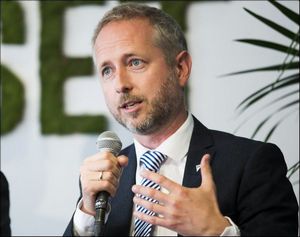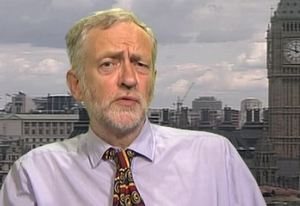Parliamentary questions and debates have recently taken place in the parliaments of Japan, Norway and the United Kingdom on the role of nuclear weapons, the possibility of a nuclear weapons ban and support for the Austrian pledge to ‘fill the legal gap to prohibit and eliminate nuclear weapons.’
Japan and the Austria pledge
At the close of the Third International Conference on the Humanitarian Impact of Nuclear Weapons, Austria the host of the conference called on states to ‘identify and pursue effective measures to fill the legal gap for the prohibition and elimination of nuclear weapons’ and in particular for the 2015 NPT Review Conference, to ‘determine the next steps for the achievement and maintenance of a nuclear-weapon-free world.’ Austria made a pledge to 'cooperate with all stakeholders to achieve this goal,’ and then invited other States to support the pledge. To date, 56 non-nuclear countries have given their support. No nuclear-armed countries or countries under extended nuclear deterrence relationships have supported.
On Wednesday March 18, Prime Minister Abe responded to a parliamentary question on the Austrian pledge submitted by Yuichiro KOGA, a member of the LDP (government party) from Nagasaki. Abe indicated that Japan would not sign the Pledge because it does not intend to take an approach to make a "unnecessary gap" with nuclear-weapon states in the run-up to the 2015 NPT Review Conference. Earlier the government had indicated that endorsing the Austrian pledge would be inconsistent with Japan’s reliance on the US ‘nuclear umbrella.’
Norway, Ukraine and a nuclear weapons ban
On March 12 the Norwegian parliament held an interactive discussion with Foreign Minister Børge Brende on a number of foreign policy issues including Syria, Afghanistan, Sudan, Iran the Ukraine crisis and nuclear weapons policy. Parliamentarians from Labour, Centre Party, Christian Democrats and the Socialist Left argued in favour of a global ban on nuclear weapons. Parliamentarians from the Conservative Party and the Progress Party argued that nuclear weapons continued to be necessary for defence, particularly in light of recent aggression and nuclear sabre-rattling by Russia.

The debate included specific questions from Anniken Huitfeldt (Labour), Liv Signe (Centre Party) and Bård Vegar Solhjell (Socialist Left Party) to the Foreign Minister on whether Norway would take an active role in advancing a global ban on nuclear weapons. Mr Brende replied to these questions by stating that Norway supported the goal of a nuclear-weapon-free world and action to increase awareness of the humanitarian impact of potential nuclear weapons use. However, he noted that current threats, including from Russia, justify a continued reliance on nuclear weapons, and that a ban on nuclear weapons would not be consistent with NATO membership as long as nuclear weapons are part of NATO strategy. Mr Brende added that there is no political basis at the moment for a nuclear weapons ban in NATO nor at the 2015 NPT Review Conference.
Click here for informal translations of quotes from the parliamentarians speaking in the debate.
UK parliamentary debate and questions on the NPT and nuclear weapons use
On March 9, the UK House of Commons held a debate on the NPT which was opened by former Foreign Secretary Margaret Beckett, a member of the Top Level Group of UK Parliamentarians for Multilateral Nuclear Disarmament & Non-Proliferation. Beckett gave an overview of developments in the field of nuclear non-proliferation and disarmament, and the work of the Top level Group to encourage cooperation between the P5 on nuclear disarmament.
PNND Council member Jeremy Corbyn (Labour) was more direct in criticising the UK government for maintaining nuclear weapons while trying to prevent proliferation to others. Corbyn indicated that the UK should consider the example of South Africa, which gained global credibility by abandoning nuclear deterrence and destroying its nuclear stockpile.

PNND member Angus Robertson (SNP) suggested that the UK should ‘stop wasting £100 billion on a new generation of Trident submarines,’ and instead ‘play a positive role in the world towards disarmament by scrapping the Trident programme.’
Dr Julian Lewis (Conservative) provided an alternative perspective arguing that the UK nuclear deterrence was vital given increasing aggression from Russia. He commented that ‘it is legitimate to ask this; would Crimea have been grabbed and Eastern Ukraine occupied if the Ukrainians had kept some of their nukes?’
John Woodcock (Lab/Co-op) agreed arguing that not to proceed with Trident renewal, ‘would mean that the United Kingdom abrogated its responsibility to its own citizens and those in allied countries under the UK’s nuclear umbrella in Europe.’ They were followed by a number of other speakers expressing a similar range of views.
- Watch UK Parliament TV: MPs debated Nuclear Non-Proliferation Treaty, Monday 9 March 2015.
- Read Commons Hansard: MPs debated Nuclear Non-Proliferation Treaty, Monday 9 March 2015
The debate followed a series of questions asked in December and January by PNND UK members to the Secretary of State for Defence and the Secretary of State for Foreign and Commonwealth Affairs on nuclear disarmament issues. These included questions by Jeremy Corbyn on the atmospheric consequences of nuclear war, on the impact of the use of UK nuclear weapons, and on why publishing information on the impact of UK nuclear weapons would be detrimental to UK security.
Paul Flynn asked about the outcome of the International Conference on Humanitarian Impact of Nuclear Weapons, and on UK's obligations in international law in the event of economic or environmental damage being caused to other countries by radioactive fallout or blast arising from a British nuclear weapon being detonated.
Lord Judd asked what proposals the P5 would be advancing to the 2015 NPT Review Conference.
Justin Bieber 'Popstar' Music Video Outfits

